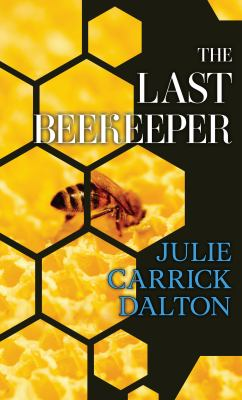Now that we’re getting little stretches of nice weather, I’m ready to spend some time in the yard. My goal this year is to add some more flowering plants that are attractive to pollinators, including bees, butterflies, and hummingbirds. According to the U.S. Department of Agriculture, about three-fourths of the world’s flowering plants and more than one-third of food crops rely on animal pollinators like birds, bats, butterflies, honey bees, and other insects. Those crops include fruits, berries, melons, potatoes, vanilla, almonds, coffee, and chocolate.
Planting native plants is best for attracting pollinators–and makes growing easier. I’ve included some books to help identify those native plants and some other titles I found about bees. Until we can spend more time in the yard, at least we can read!
- The ultimate wildlife habitat garden : attract and support birds, bees, and butterflies by Stacy Tornio. (Nonfiction) For gardeners who are ready to take their efforts to the next level by planting for birds, butterflies, and other wildlife. Regional recommendations are tailored to attracting specific pollinators.
- Pacific Northwest native plant primer : 225 plants for an earth-friendly garden by Kristin Currin. (Nonfiction) The benefits of native plants are enormous—they reduce maintenance, require less water, and attract vital, earth-friendly pollinators like birds, butterflies, and bees. This offers the best choices for Oregon and Washington.
- Milk without honey by Hanna Harms. (Nonfiction Graphic Novel) Bees are vital to securing our food supply. We could live in a paradise where insects, especially bees, pollinate fragrant seas of flowers whose fruits we harvest. Instead, vast lawns are now replacing flower gardens. Pesticides and climate change are also causing insect mortality, with dramatic consequences for the global ecosystem.
- What a bee knows : exploring the thoughts, memories, and personalities of bees by Stephen L. Buchmann. (Nonfiction) Although their brains are incredibly small--just one million neurons compared to humans' 100 billion--bees have remarkable abilities to navigate, learn, communicate, and remember. In What a Bee Knows, entomologist Stephen Buchmann explores a bee's way of seeing the world and introduces the scientists who make the journey possible. What a Bee Knows will challenge your idea of a bee's place in the world--and perhaps our own.
- The last beekeeper by Julie Carrick Dalton. (Fiction) It's been more than a decade since the world came undone, and Sasha Severn has returned to her childhood home with one goal in mind–to find the mythic research her father, the infamous Last Beekeeper, hid before he was incarcerated. What she is shocked to find is a honey bee.
Library tip of the month: FVRLibraries offers books by mail at no charge to patrons with mobility issues that make it difficult for you to travel to a library to pick up books, and there is no one else who can pick up books for you, or your driving distance from the nearest library is more than 10 miles. Learn more at Books by Mail or call 360-906-5000 for assistance.

